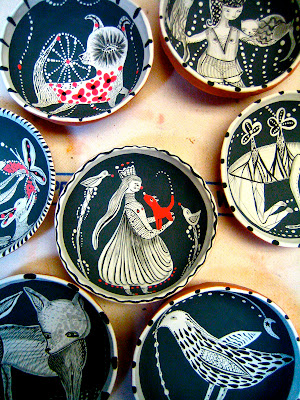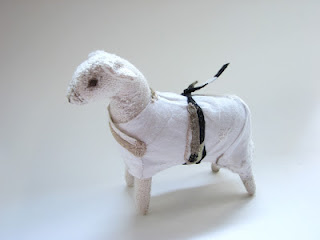SHADOW
does not exist by itself, it is cast, by a real physical body. We may say a person is overwhelmed by their shadow: a Tiger Woods by their sexuality, a Richard Nixon by their overweening sense of power, a nation by its hubris, but their shadow is passive, an absence of light, a shape lent by their own outline. Shadow is shaped by presence; presence comes a priori to our flaws and absences. To change the shape of ourselves is to change the shape of the shadow we cast.
To become transparent is to lose one’s shadow altogether, something we often desire in the spiritual abstract, but actually something that is not attainable by human beings – to change the shape of the identity that casts a shadow is more possible. Shadow is a necessary consequence of being in a sunlit visible world, but it is not a central identity, or a power waiting to overwhelm us.
Even the most beneficial presence casts a shadow. Mythologically, having no shadow means being of another world, not being fully human, not being in or of this world. Shadow is something that must be lived with, literally, as it follows us around, obscuring the sun or the view for others, yet we cannot use it as an excuse not to be present, nor to act, nor to effect others by our presence, no matter if the effect is sometimes indeed, overshadowing and difficult. Nor can we use it as an excuse to run uncaring over other’s concerns.
To live with our shadow is to understand how human beings live at a frontier between light and dark; and to approach the central difficulty, that there is no possibility of a lighted perfection in this life; that the attempt to create it is often the attempt to be held unaccountable, to be the exception, to be the one who does not have to be present or participate, and therefore does not have to hurt or get hurt. To cast no shadow on others is to vacate the physical consequences of our appearance in the world.
Shadow is a beautiful, inverse, confirmation of our incarnation. Shadow is intimated absence; almost a template of presence. It is a clue to the character of our appearance in the world. It is an intimation of the ultimate vulnerability, the dynamic of being found by others, not only through the physical body but by its passing acts; even its darkening effect on others; shadow makes a presence of absence, it is a clue to ourselves and to those we are with, even to the parts of ourselves not yet experienced, yet already perceived by others. Shadow is not good or bad, only inescapable.
...
...
‘SHADOW’ From CONSOLATIONS:
The Solace, Nourishment and Underlying Meaning
of Everyday Words
© 2015 David Whyte and Many Rivers Press
The Solace, Nourishment and Underlying Meaning
of Everyday Words
© 2015 David Whyte and Many Rivers Press



Comments